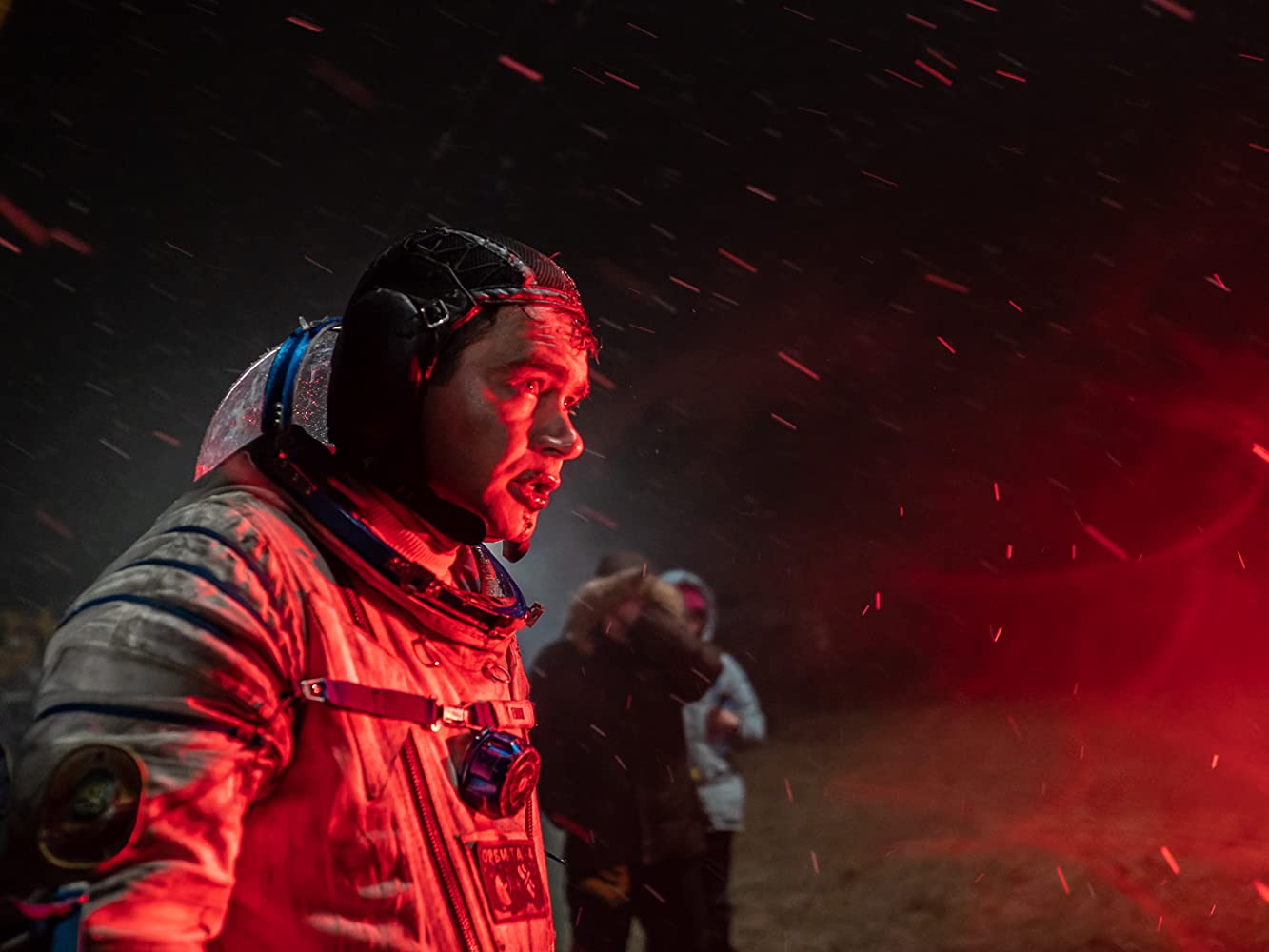
Since Ridley Scott’s groundbreaking, legendary sci-film Alien was released in 1979, tales of alien life forms seeking unsuspecting human space explorers to use as living hosts have been ubiquitous in the genre to the point of becoming rote and cliche. While some of the films that have followed Scott’s template have been better than others, the general consensus is that adding something new to the trope is increasingly difficult and any attempts at doing so are doomed to fail and land decidedly on the side of humdrum repetitiveness. Sputnik, a new film from Russia, attempts to prove this theory wrong.
Sputnik introduces us to young doctor Tatiana Yurievna (Oksana Akinshina) who is on the precipice of losing her medical license due to her controversial methods. After a hearing to decide her professional fate, Tatiana is recruited by Colonel Semiradov (Fyodor Bondarchuk, son of legendary Russian director Sergei Bondarchuk) to assess the highly classified case of Konstantin Sergeyevich (Pyotr Fyodorov), the national hero and cosmonaut who survived a mysterious space accident and has returned to Earth with a unique condition: an alien parasite living inside of him that emerges from within Konstantin at night. Amidst the military’s shadowy plans for the creature, Tatiana must find a way to save Konstantin.
Both the relationship between parasite and host, and its metaphorical meaning, is what creates separation between Sputnik and its predecessors within this particular subgenre. The alien life form and Konstantin are much more symbiotic than host-parasite as the alien begins to adapt his host’s consciousness and take on his emotions and feelings, acting them out as a sort of avatar for the human and his id. In this regard, Sputnik is as much of a spiritual successor to 1956’s foundational sci-fi film Forbidden Planet as it is to Scott’s trailblazer. Their neurotic symbiosis also takes on a metaphorical meaning as the alien feeds on cortisol, a hormone released in excess by the human brain in response to fear. For this reason, Konstantin made an ideal host due to the internalized fear and enduring guilt he felt for his devotion to his career at the expense of the well-being of his young son, who as a result now resides in an orphanage. The plot point serves as the basis for the film’s theme examining the nature of how fear can consume and ultimately control us if we succumb to it rather than dealing with our troubles head on. Konstantin’s submission to his fears and guilt surrounding his parenting only serves to tighten his involuntary bond with the monster inside of him, both the literal alien parasite and the metaphorical one represented by his latent emotions.
While Sputnik may first appear to be just another derivative version of a sci-fi story that we’ve seen before, what director Egor Abramenko has created is an engrossing, interesting film that calls upon the foundational genre fare before it to explore complex human emotions while making the most of its low budget in crafting impressive, gory visuals. The alien at the center of the film closely resembles Calvin, the alien life form from 2017’s Life at a budget total equaling just two percent of that $100.5 million American blockbuster. The big budget feel of the small Russian film is a testament to Abramenko’s craftsmanship. The director is also able to pull out great performances from his cast that play up the moral ambiguities and questions at the center of the film’s theme. Sputnik is well made and a welcome addition to the sci-fi genre.
Image: IFC Films

